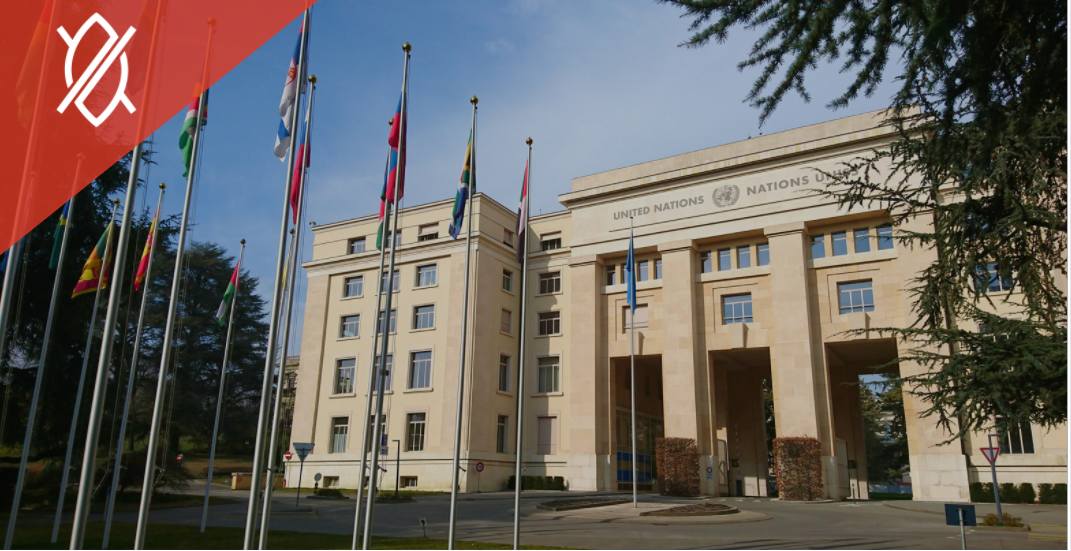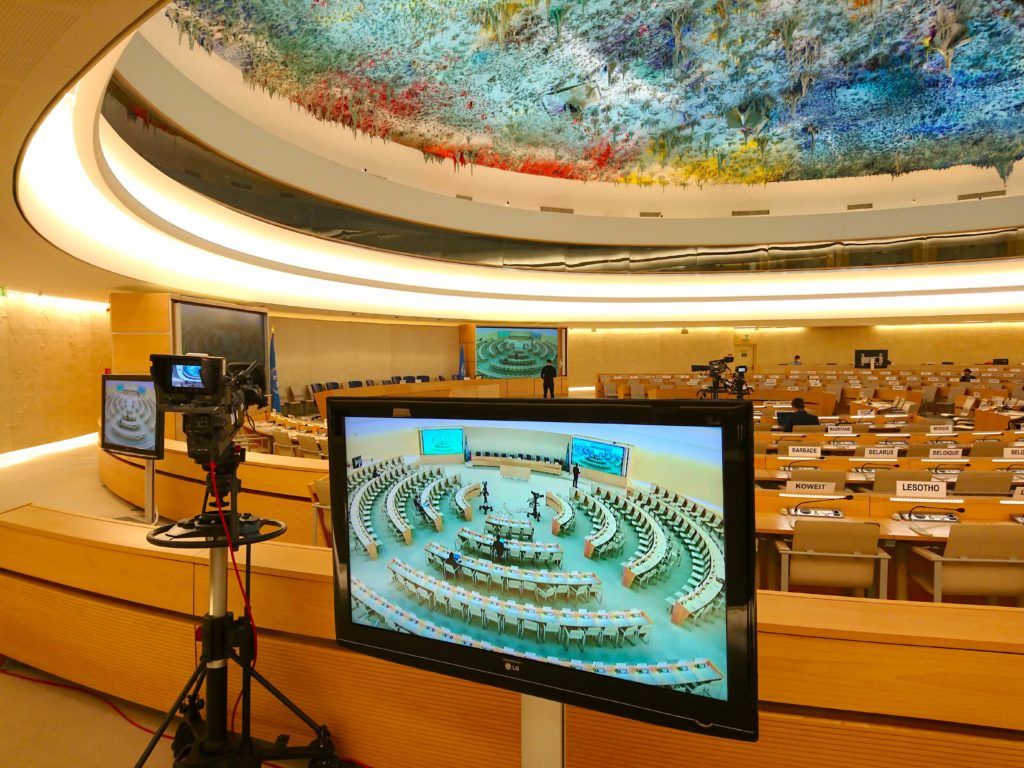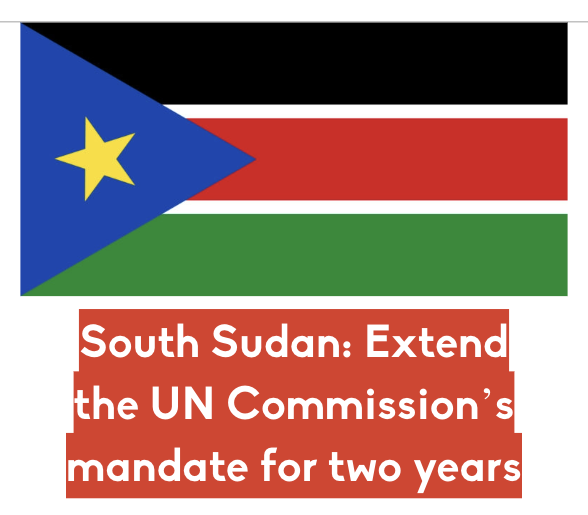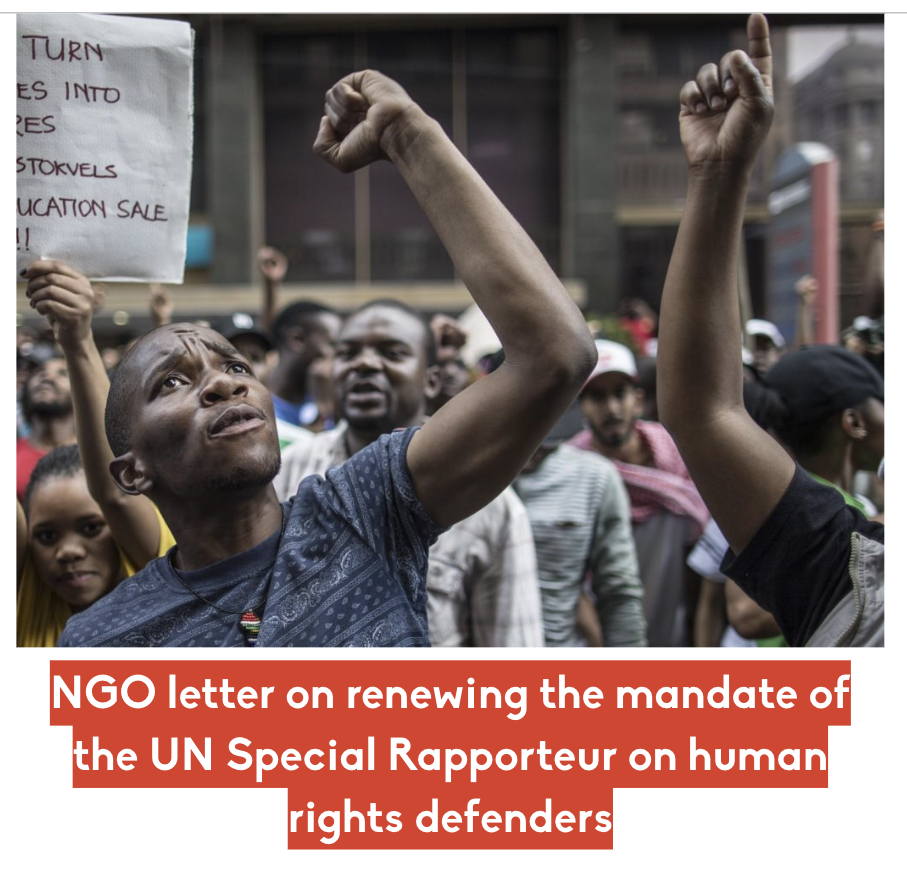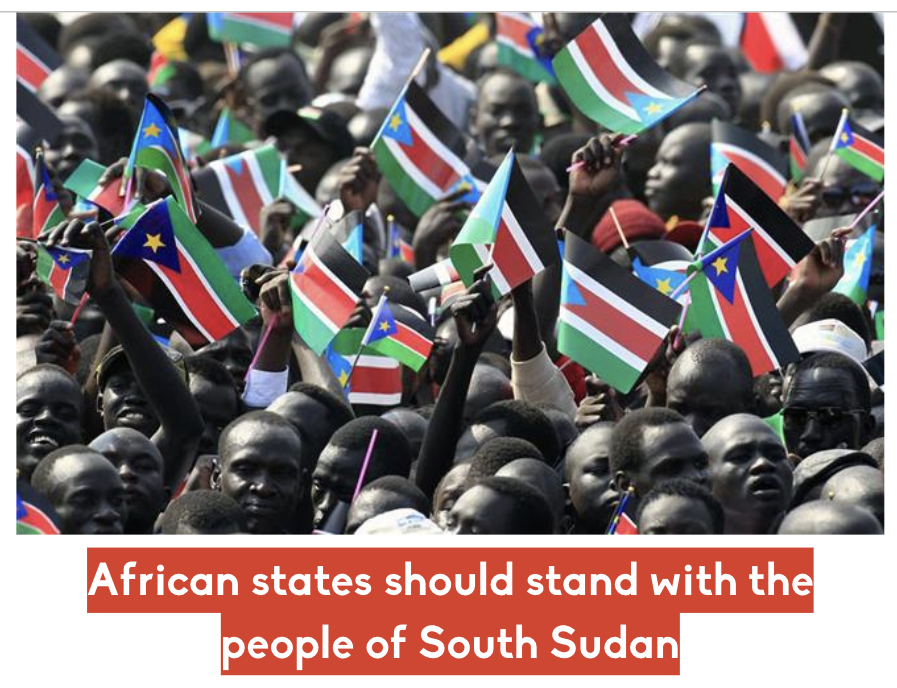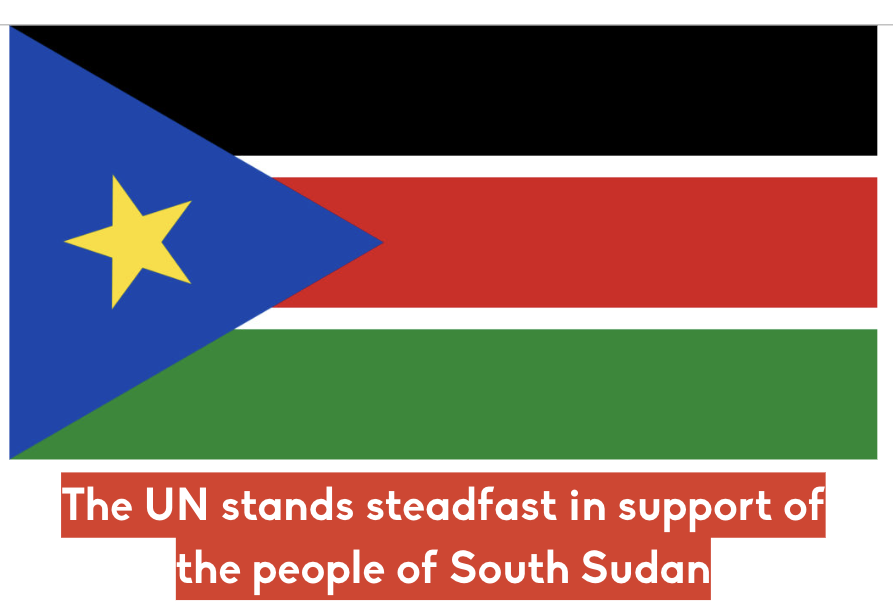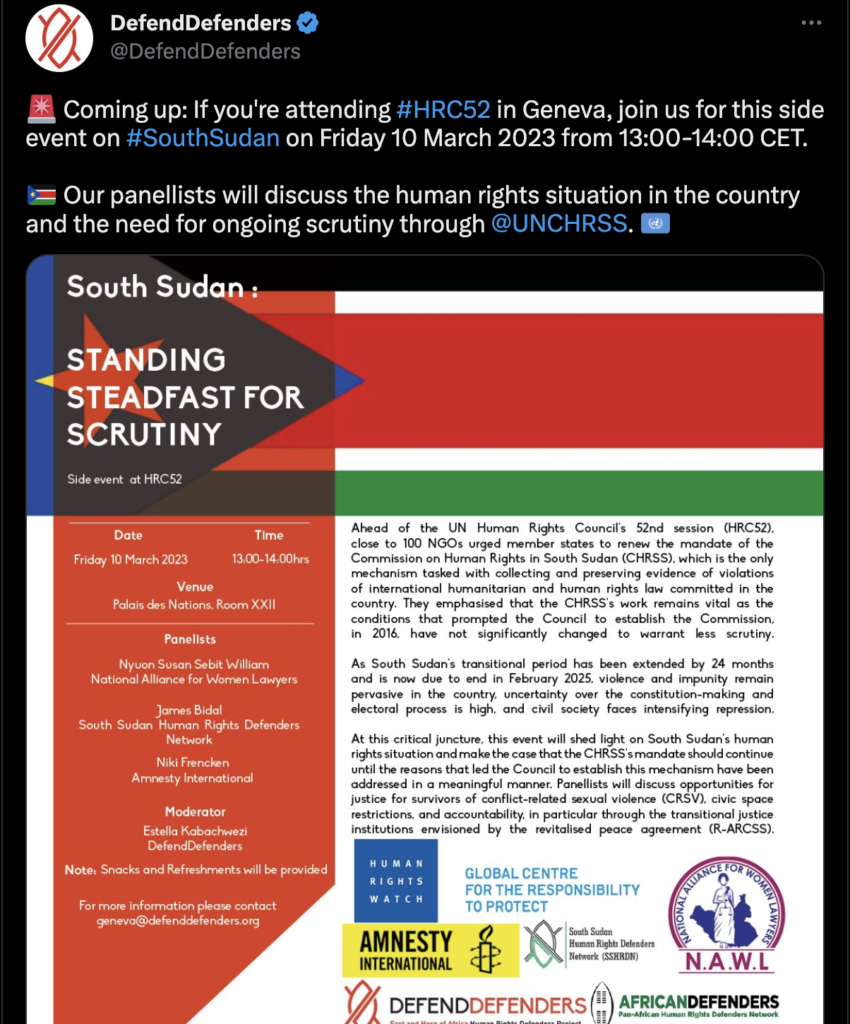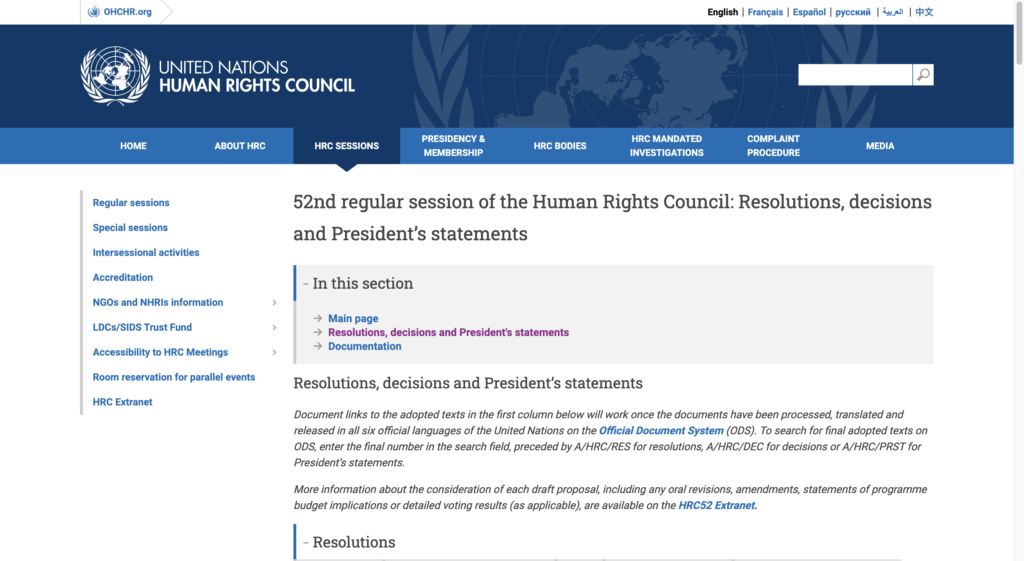With five and a half weeks, HRC52 was the longest session in the Human Rights Council’s history, a reflection of a world in crisis with increasing human rights violations and attacks on human rights defenders (HRDs). However, prolonging session periods raises questions over the sustainability and effectiveness of the Council’s work, as states keep adding more debates, more resolutions, and more mechanisms to the agenda. The result is an overloaded programme of work that makes it difficult to shed adequate light on country situations and thematic issues that deserve attention.
HRC52 started with the traditional “High-Level Segment (HLS),” a week dedicated to statements by dignitaries and an opportunity for civil society to engage with high level representatives of states which I did throughout the week. Beyond meeting with dignitaries, the HLS engagement enabled us to raise issues relevant to HRDs in the East and Horn of Africa and to call on states to make human rights and civic space central to their bilateral and multilateral relations. We highlighted, for instance, the need for continued human rights scrutiny of crises in the East and Horn of Africa sub-region.
DefendDefenders concluded the first week with a breakfast event to celebrate the fifth anniversary of our Geneva office which has proved to be an invaluable asset. A permanent presence in Geneva, and our engagement with states and UN actors all year long (both during and in between HRC sessions), has strengthened DefendDefenders’ standing and position as a leading African human rights organisation. The last five years (16 regular sessions and two special sessions of the HRC) have positioned us as a leader regarding advocacy on our mandate countries – and beyond, given our work as host and coordinator of AfricanDefenders. We pledge to continue to make the voice of African HRDs heard in Geneva and considered in UN decision-making on human rights in Africa.
During HRC52, I delivered a statement to the Council, highlighting the need for ongoing scrutiny of Sudan’s human rights situation. Our other oral statements to HRC52 addressed Eritrea, South Sudan, HRDs, Ethiopia, and Eswatini focusing on the killing of Thulani Maseko.
The following week, two South Sudanese HRDs, James Bidal and Susan Sebit William, joined my team, led by Estella Kabachwezi and Nicolas Agostini. They conducted advocacy in support of the Commission on Human Rights in South Sudan (CHRSS), the only mechanism tasked with collecting and preserving evidence of violations of international law with a view to ensuring accountability in South Sudan. Ahead of the session, DefendDefenders led efforts coordinating close to 100 civil society organisations, to endorse a letter calling on states to extend the CHRSS’s mandate. During the session, our delegation met with state representatives and UN officials and held an in-person side event on South Sudan.
Our efforts were successful as the Council adopted a resolution extending the CHRSS’s mandate for a further year. We will continue to support South Sudanese HRDs and the people of South Sudan in their quest for a more just and rights-respecting country, at peace and governed by the rule of law. African states, as I highlighted in an opinion piece, should support them too. The voting results show, however, that African states remain reluctant to openly support resolutions addressing violations in other African countries. As our 2022 report, Between Principles and Pragmatism, showed, abstention is often a way of saying “Yes” to resolutions without “naming and shaming” the government of the country concerned. Regarding South Sudan, this year again, eight of the 13 African members of the Council chose to abstain – thus sending a message to the South Sudanese government that it must improve its dire human rights record.
Traditionally, during March sessions, resolutions on HRDs (usually drafted at the initiative of Norway) are considered. This year’s resolution was short and procedural: it sought to renew the Special Rapporteur’s mandate for three years. By doing so, Norway contributed to “rationalising” the work of the Council: it will continue to present strong, substantive resolutions on HRDs every three years, and to present short resolutions to simply renew the SR’s mandate. The next substantive resolution is planned for 2025. This year’s text was adopted by consensus. We supported these efforts, both by signing a civil society letter and engaging with states and by supporting a side event with the Special Rapporteur, Mary Lawlor.
The next session, HRC53, will take place in June-July 2023. We will focus on Sudan and Eritrea. Before that, a session of the African Commission on Human and Peoples’ Rights (ACHPR) will be held. We will continue to do our best to “cross-fertilise” ACHPR and HRC outcomes – HRC52 showed that this is possible, as the resolution on South Sudan took up and built upon significant elements of the last ACHPR resolution on South Sudan (November 2022), which we also worked on.
Oral statements to the Council
Advocacy documents and press releases
Resolutions
- Ethiopia
- Burundi
- Somalia

